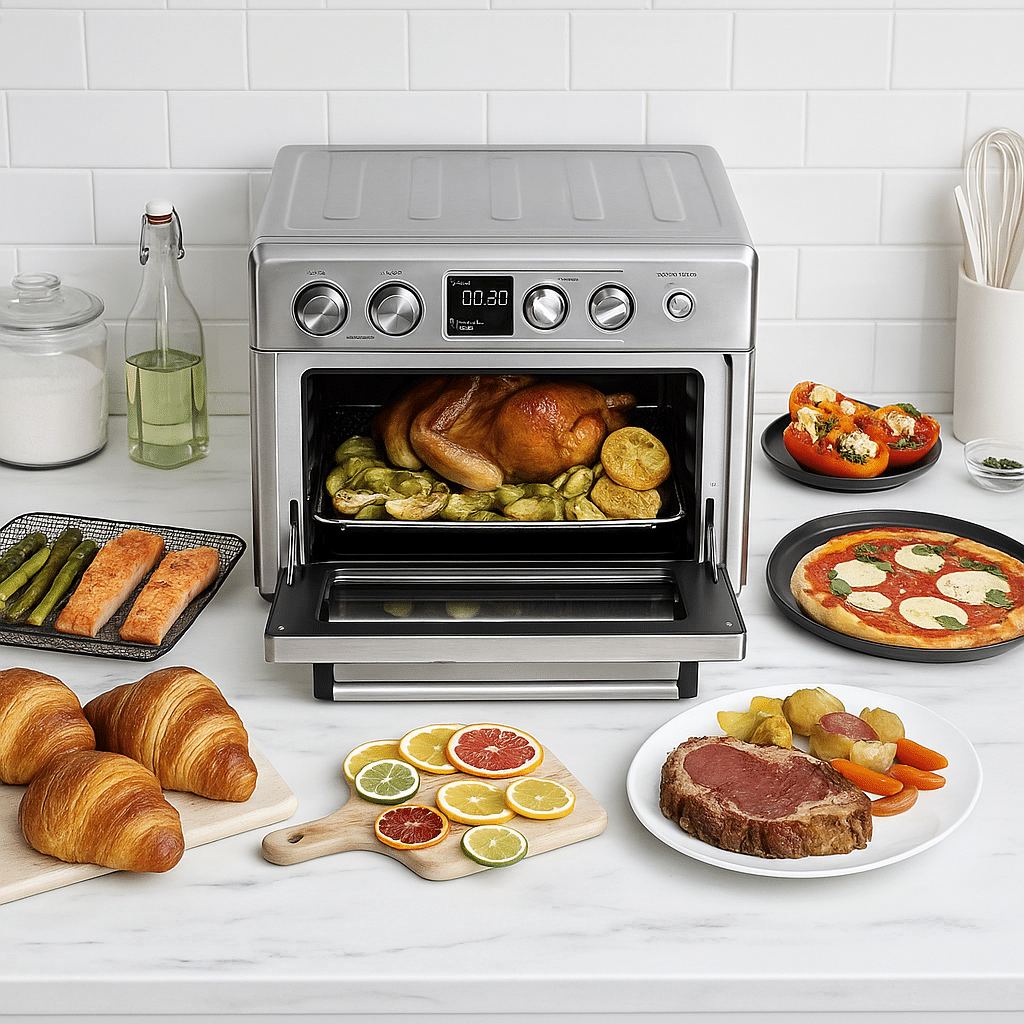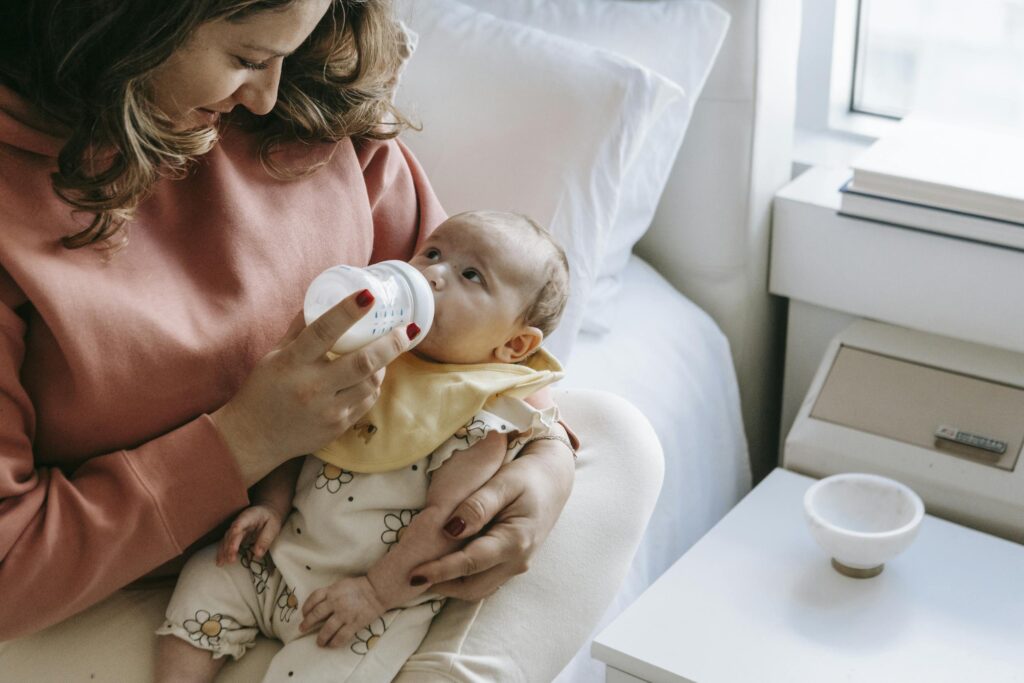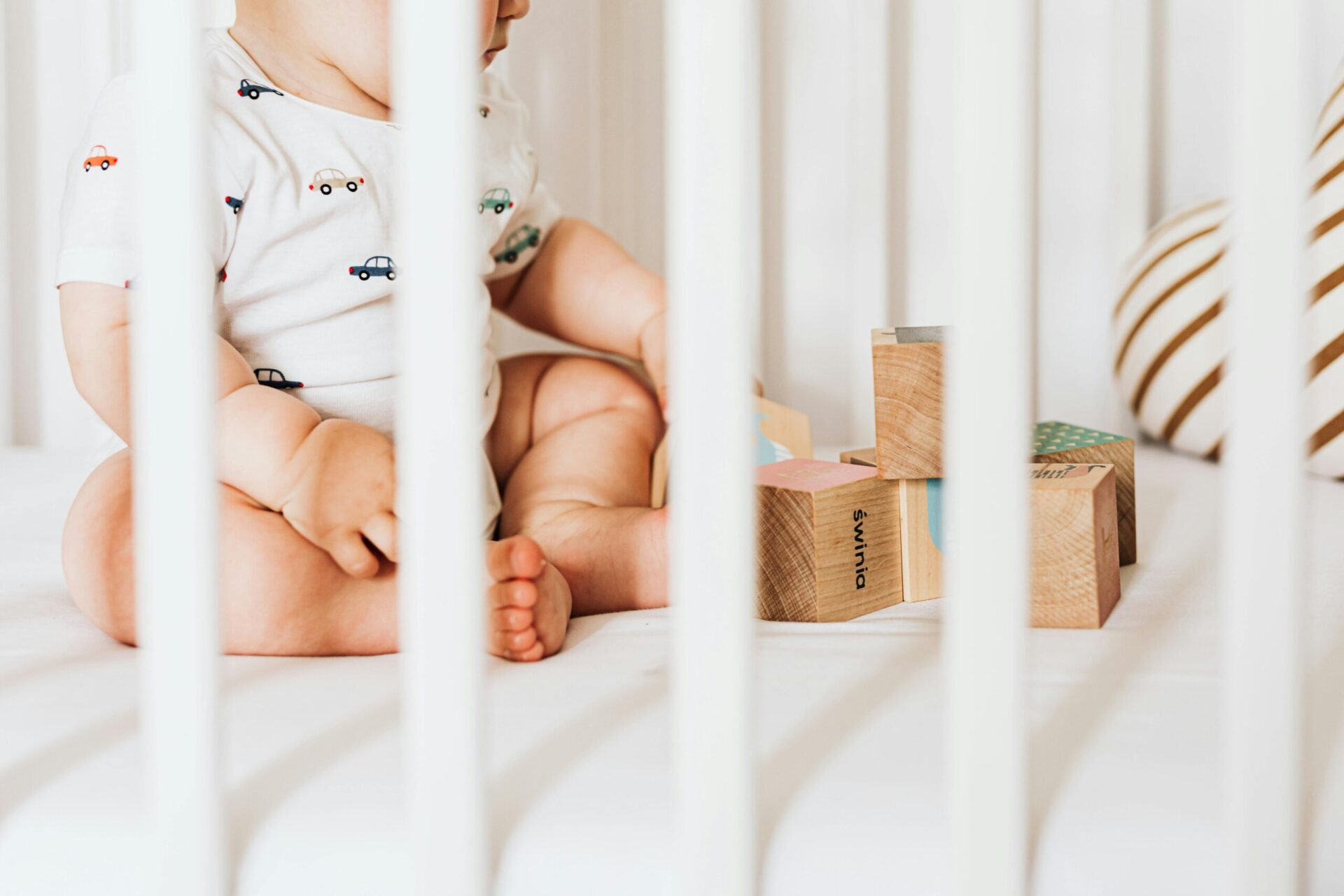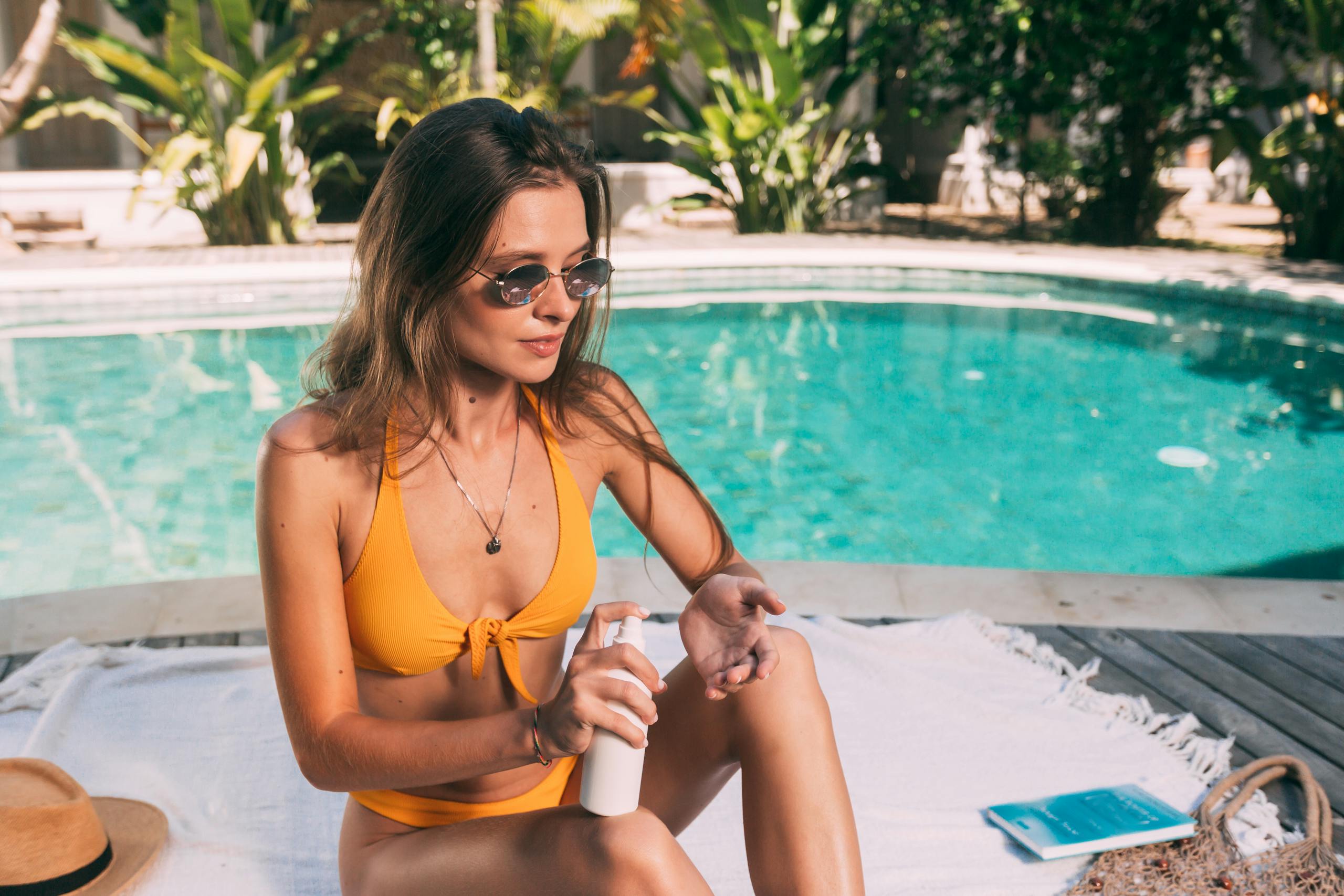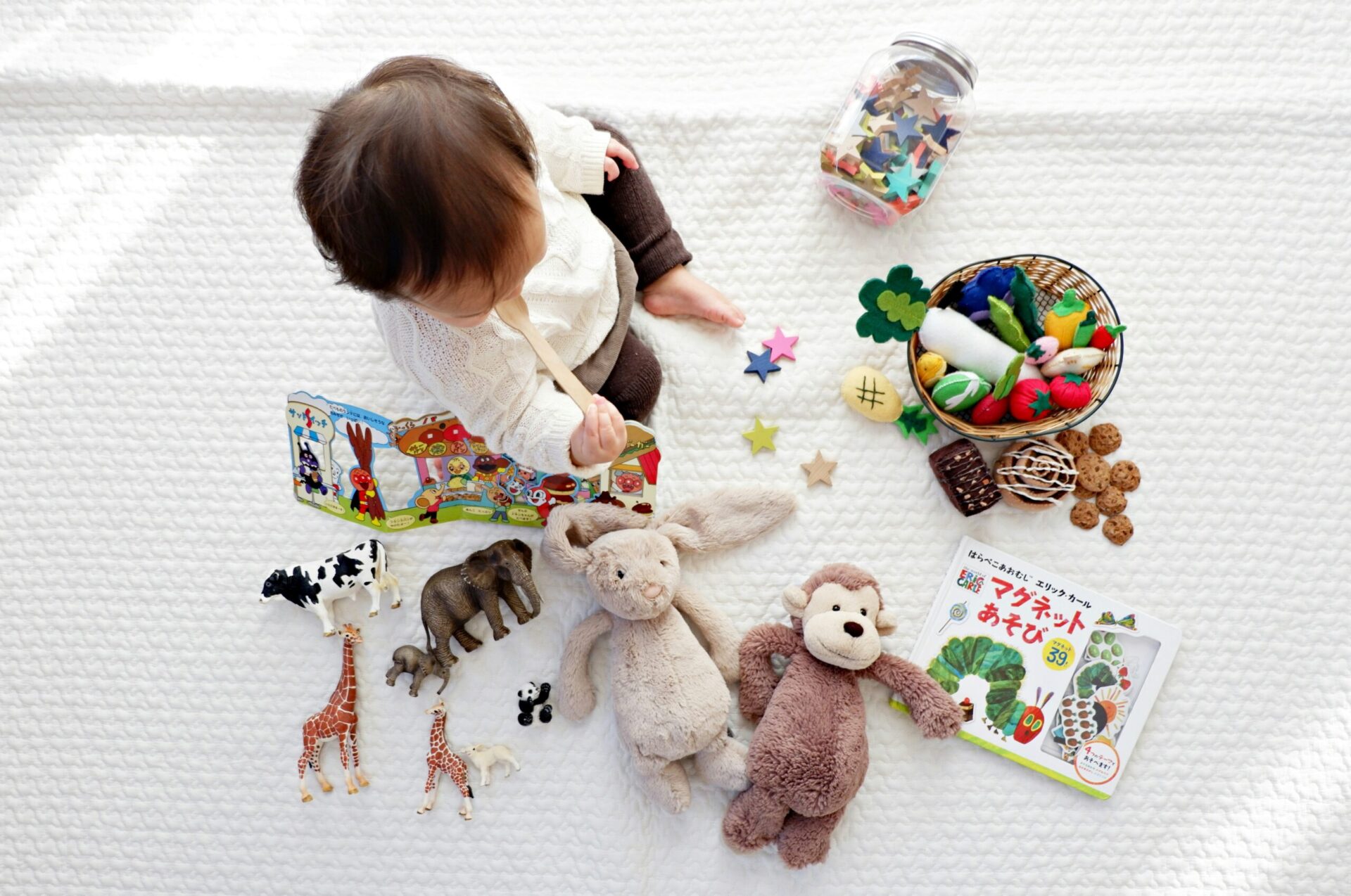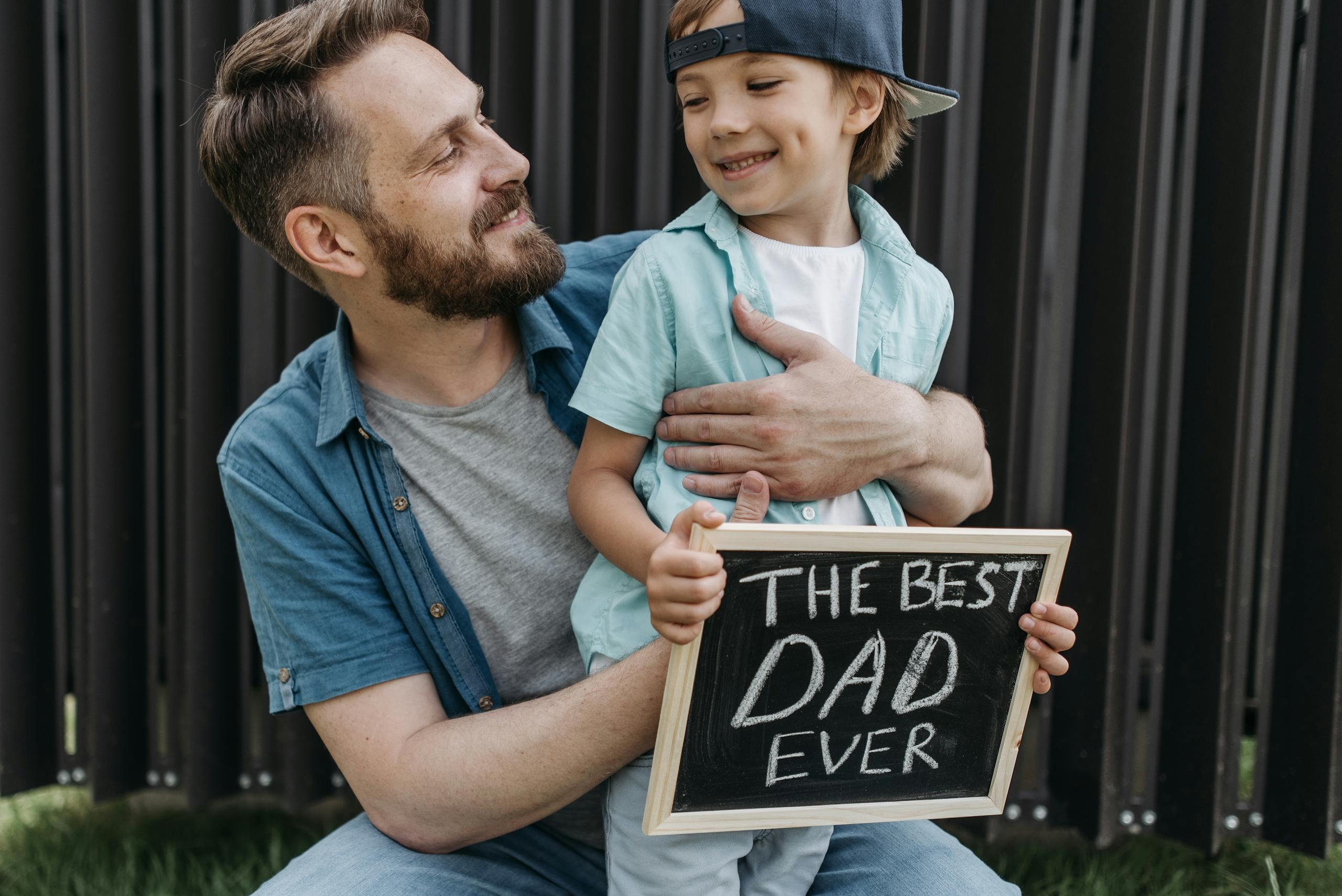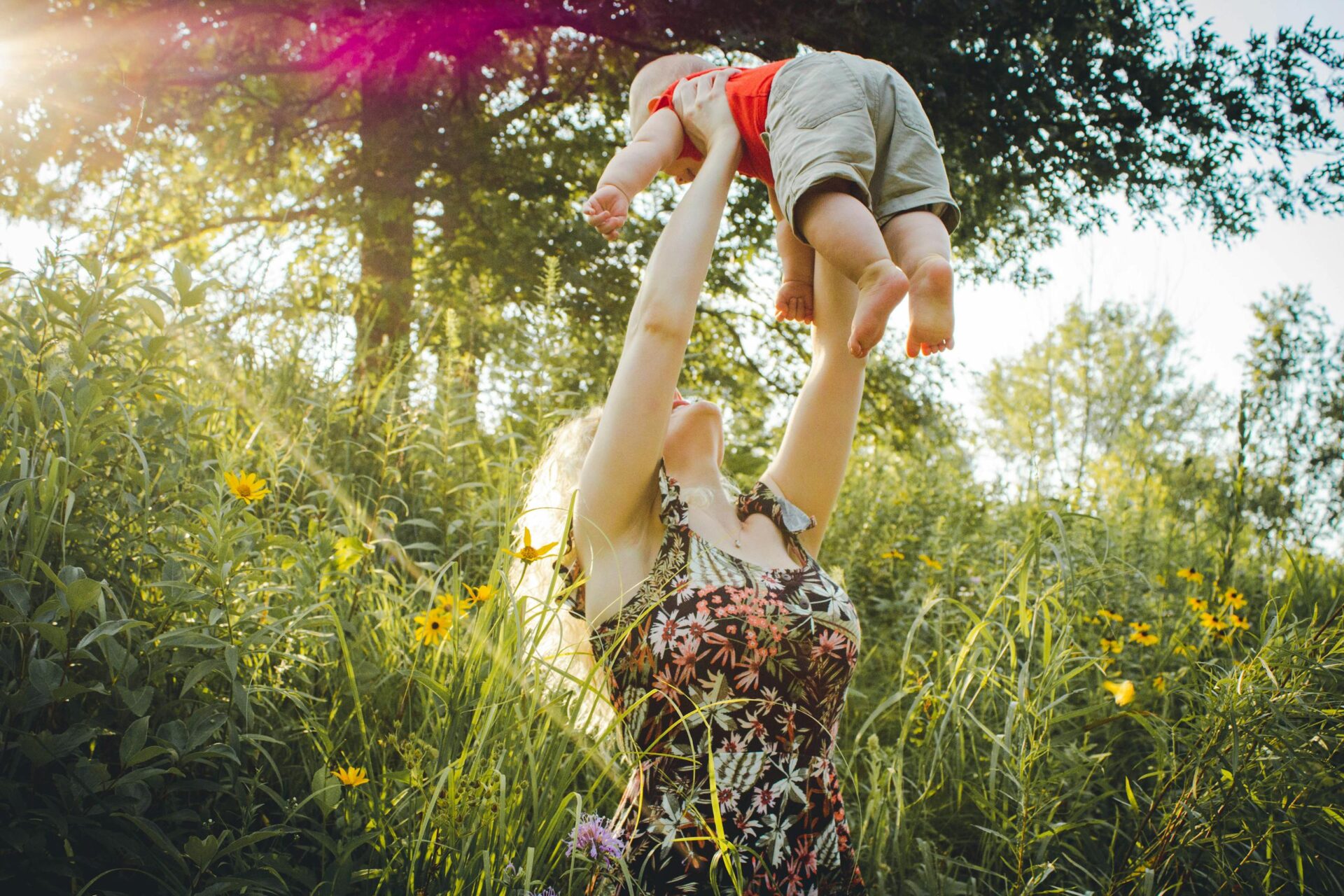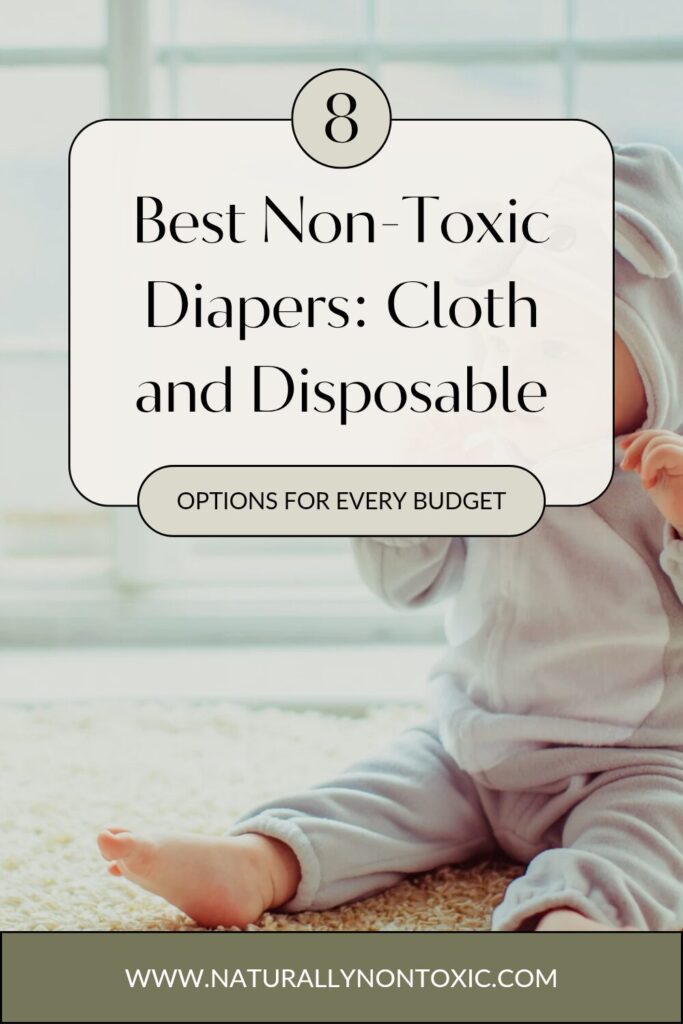
Non-toxic diapers were the first baby product I researched when I was pregnant—I couldn’t shake the thought of putting harsh chemicals on my baby’s delicate skin, and I knew there had to be safer options out there. Trying to find the best non-toxic diapers was a daunting task that seemed impossible. Every diaper I researched claimed to be natural, safe, and non-toxic, but when I read the ingredients, it seemed like no diaper was truly non-toxic.
Knowing that organic cotton was a safe material for my baby’s skin, I eventually came to the conclusion that cloth diapers were the only truly non-toxic solution. Long story short, cloth diapers didn’t work for my baby anyways, and I had to start researching again, hoping there were some diaper brands I had missed the first time around.
I spent so much time researching which diapers are made of safe materials, are eco-friendly, and can last through the night. I made it my mission to find a non-toxic alternative to cloth diapering that I could feel good about.
What Makes Diapers Non-Toxic?
Before diving into my favorite non-toxic diaper brands, it’s important to understand what makes a diaper non-toxic. Here’s what to look for:
- Materials: Look for plant-based materials (instead of petroleum based), organic cotton, or sustainably sourced fibers. Avoid chlorine, fragrances, dyes, and lotions. Because nothing says “I love you” like keeping toxic chemicals away from your baby’s tush.
- Certifications: Certifications like OEKO-TEX, TCF (Totally Chlorine-Free), and FSC (Forest Stewardship Council) can provide peace of mind. Trust me, these labels are your best friends.
- Performance: A diaper should be absorbent, comfortable, and free from irritants that can cause diaper rash. No one wants a grumpy baby or a blowout at the worst possible moment.
- Eco-Friendliness: Consider biodegradability, compostability, or the use of recycled materials. Because saving the planet while raising a tiny human? It’s kind of our superpower.
I’ll break down each diaper option with pros, cons, and pricing—plus some of my personal experiences—to help you make an informed decision.
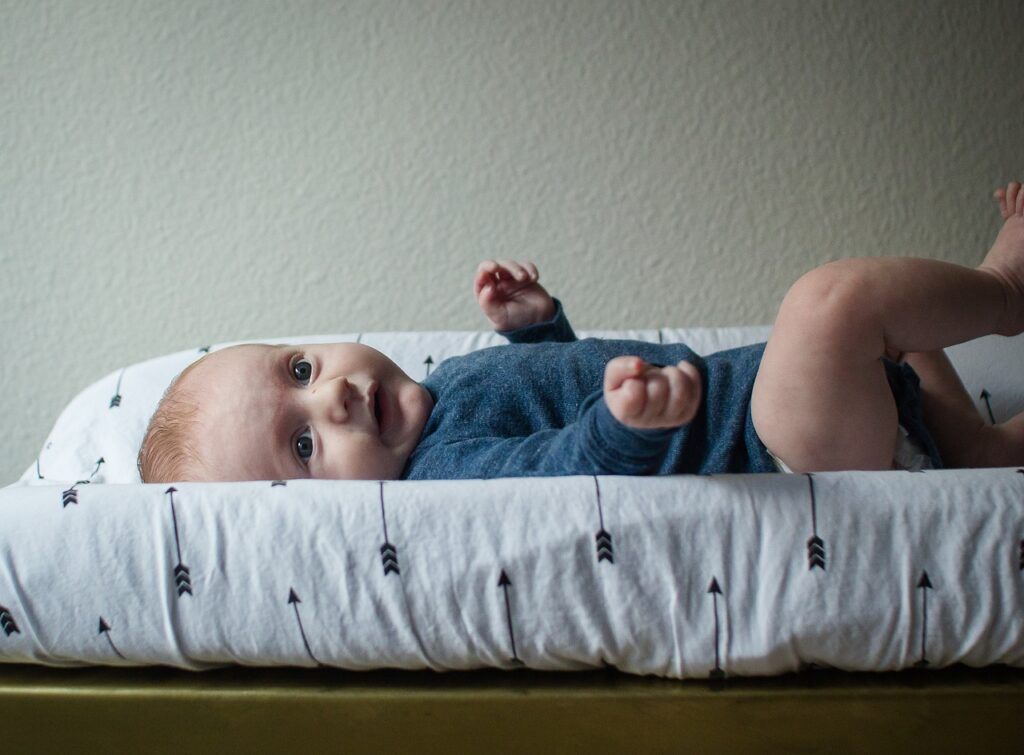
Cloth Diapers
Disposable diapers are the third-largest single consumer item in landfills. In 2018, the EPA estimated that 4.1 million tons of disposable diapers were disposed of. This makes cloth diapers, hands down, the most eco-friendly diaper option.
When it comes to a truly non-toxic diaper, you can’t beat cloth diapers. There are plenty of organic cotton options and they are free from the chemicals that are found in many disposables. There is a special kind of warm satisfaction you feel when you cloth diaper your baby.
It’s not for everyone, but luckily cloth isn’t the only non-toxic diaper option. If you already know you don’t want to deal with the extra laundry, keep scrolling for the best non-toxic disposable diaper options!
Pricing:
Expect to spend $15–25 per diaper. A starter kit with 20–30 diapers can cost $300–600. When you consider the average family spends over $900 per year on diapers, cloth is cheaper in the long run.
My Favorite Non-Toxic Cloth Diapers:
OsoCozy Organic Flat Cloth Diapers
Flats are the most affordable and versatile cloth diaper option. I love that they dry very fast compared to pocket diapers. Bonus: I never had a blowout using flats because I could fold the diaper for a perfect fit on my baby. OsoCozy flats use 100% organic cotton and you can buy them by the dozen. I started my cloth stash with three dozen OsoCozy organic cotton flats.
Esembly Cloth Diapers
Esembly is honestly such a great cloth diaper brand, they even have their own cloth diaper laundry detergent that works well. If you aren’t sure cloth is right for you or you want to try pocket diapers, they have an awesome “Try-It Kit” so you can test if it’s a good fit for your family. Their diapers are made from organic cotton and OEKO-TEX certified.
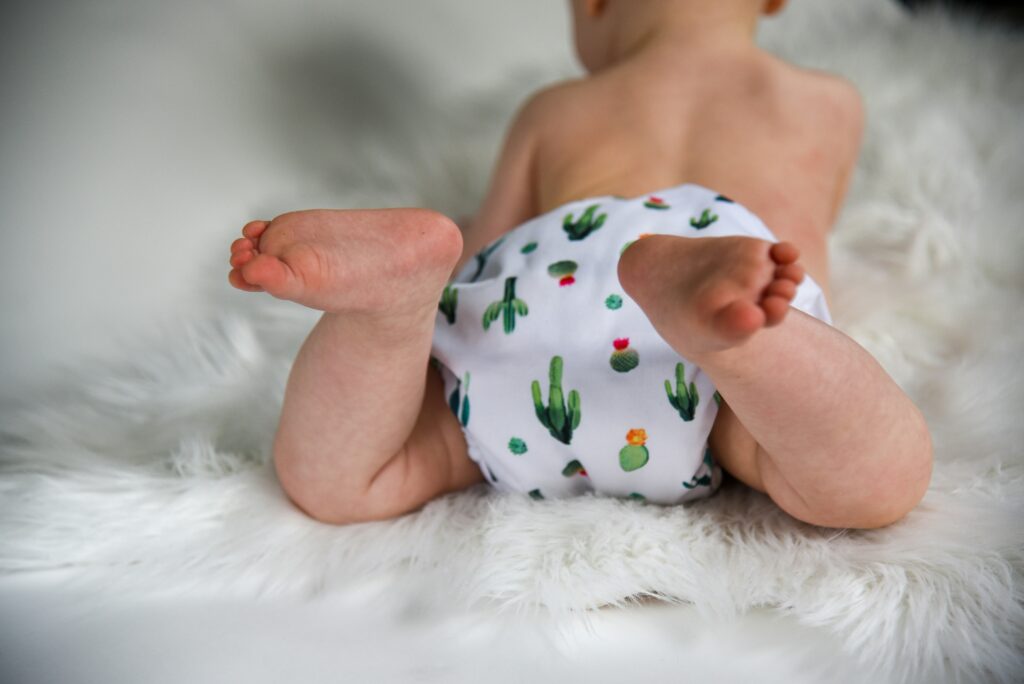
Best Overall Non-Toxic Diaper:
Pura Diapers
Pura is a British brand – their diapers are made in the EU (I love that they are not made in China). They are one of the few disposable diapers I found that are made with organic cotton (not the whole diaper unfortunately). Pura is one of my personal favorite non-toxic diapers and I’m so thankful I found them.
Pricing:
Pura diapers cost about $0.25–0.45 per diaper.
Best Eco-Friendly Non-Toxic Diapers:
Terra Diapers
Terra is a truly non-toxic disposable diaper. They do exist! Terra diapers have been third-party tested to be the fastest drying diapers, drying completely in less than one minute. Terra is another one of my favorite non-toxic diapers. I splurge on them when I can because I know they are safe for my baby’s skin.
Pricing:
Terra diapers cost around $0.58–0.71 per diaper.
Dyper Diapers
Dyper stands out for its commitment to compostability and sustainability. These diapers are perfect for parents who want to go the extra mile in reducing their environmental footprint. The inner and outer cover are both 100% plant based, there is only a small amount (9%) of polypropylene in the leg cuffs, making them a good non-toxic diaper option.
Pricing:
Dyper diapers cost about $0.50–0.65 per diaper, with the REDYPER service adding an additional cost.
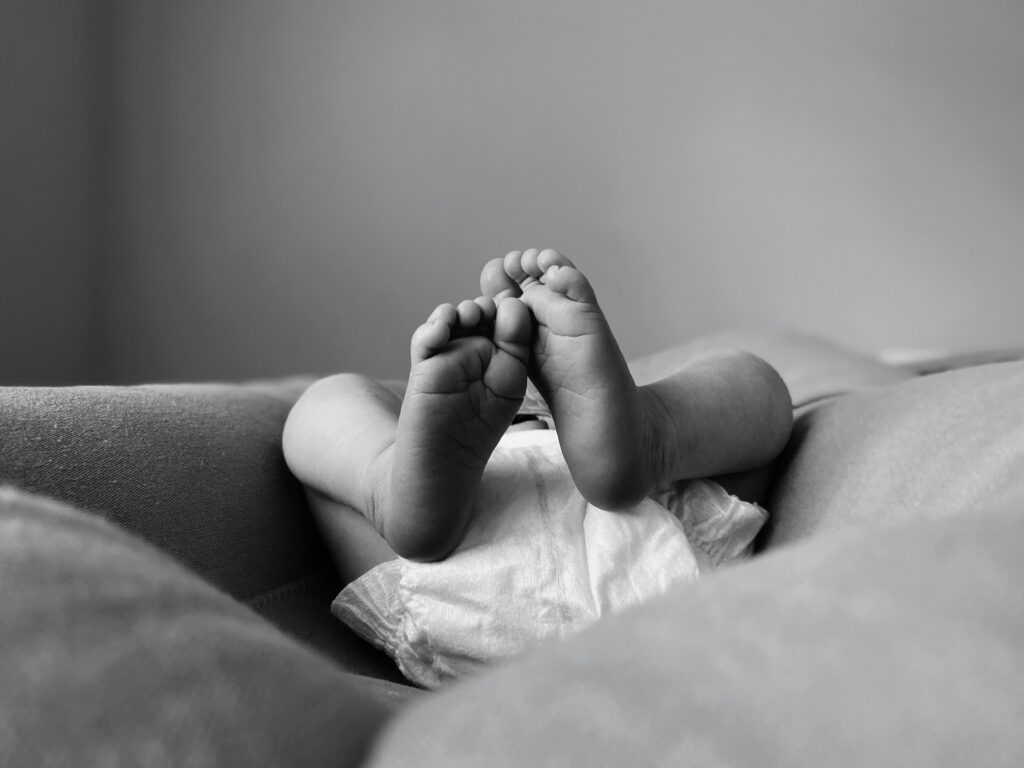
Best Luxury Almost Non-Toxic Diapers:
Coterie Diapers
Coterie has successfully branded themselves as a luxury diaper option, with a price tag to match. Are they worth it? Since there are more non-toxic diapers out there, I will not pay for name brand luxury. Coterie diapers are only 25% plant based, but they are super soft and you can bundle their diapers and wipes.
Pricing:
Coterie diapers cost around $0.60–0.70 per diaper.
Parasol Diapers
Parasol diapers are made in the Czech Republic. They are a mom-owned company that focuses on sustainability and safety. Although they still use petroleum based polypropylene, I honestly like this company and hope in the future they can use more plant based ingredients. Of all the almost non-toxic diapers, Parasol are my favorite. I also like their wipes.
Pricing:
Parasol diapers cost around $0.34–0.61 per diaper.
The Cheapest, Kinda Non-Toxic Diaper:
Hello Bello Diapers
Created by celebrity parents Kristen Bell and Dax Shepard, Hello Bello focuses on affordability. They feel super soft and have cute prints, but unfortunately, they are not the most reliable diaper. I do like that they are made in the USA.
Pricing:
Hello Bello diapers cost around $0.28–0.53 per diaper.
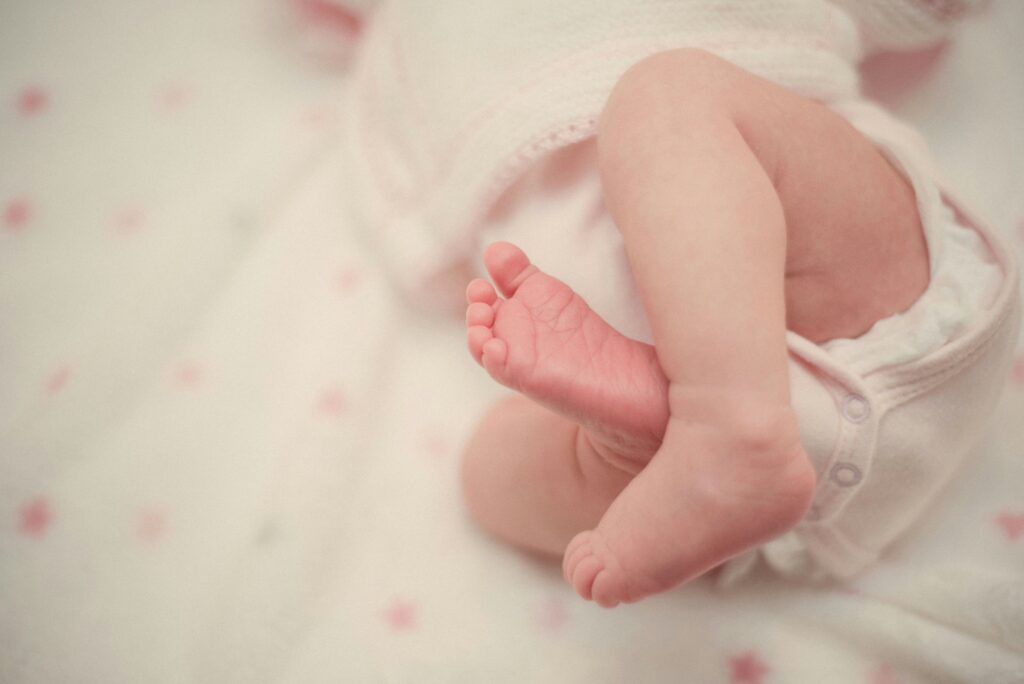
So, Which Non-Toxic Diaper is Best?
It depends on your priorities, lifestyle, and baby’s needs. Here’s my quick cheat sheet:
- Best for Eco-Warriors: Terra and Dyper (especially with composting options).
- Best for Budget-Friendly Families: Hello Bello offers a better choice without breaking the bank.
- Best for Luxury Lovers: Coterie and Parasol feel like a treat for your baby.
- Best Overall Balance: Pura hits the sweet spot of eco-friendliness, safety, and price.
- Best for Reusability: Cloth diapers are unmatched for long-term savings and sustainability.
As a mom, I know how personal this decision is. What works for my baby might not work for yours, and that’s okay! Sometimes, you need a mix of options to cover different scenarios (or your baby’s ever-changing preferences).
You may also find these Posts helpful
create a non-toxic nursery
My Non-Toxic Diaper Journey
I’ve tried them all, starting with humble flat cloth diapers and switching to the most non-toxic disposable diapers I could find. At the end of the day, I remind myself: parenting is about doing the best you can with what you’ve got. So, take a deep breath, and know that your choice matters—not just for your baby but for the planet, too.
Let me know if you want me to compare other brands or dive deeper into specific diapering questions. We’re all in this together, one diaper change at a time! Which non-toxic diaper worked best for your baby? 💚
join the newsletter
Want more non-toxic guides? Subscribe today.
